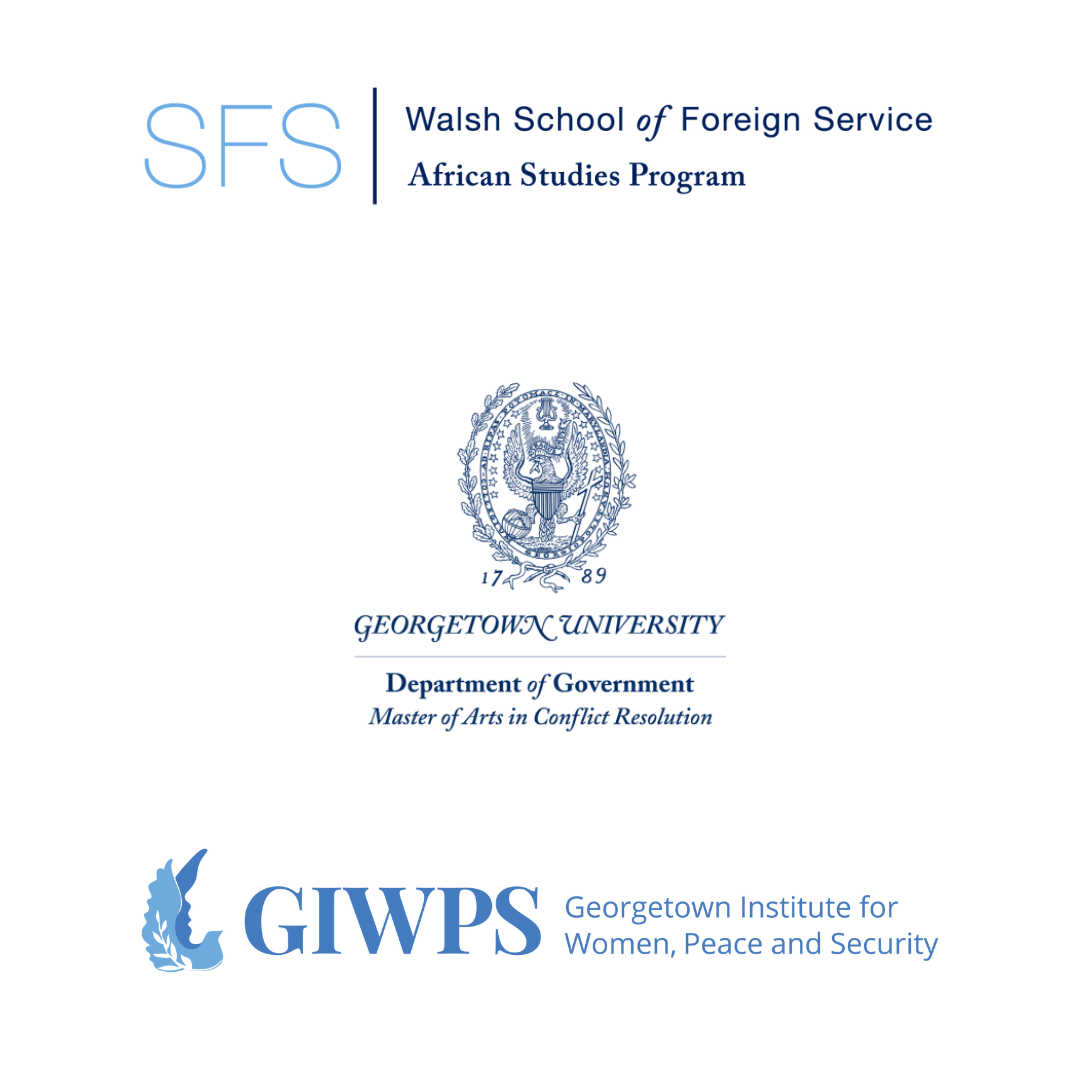Sudan: Insights Into the Current Crisis
CCAS in partnership with the African Studies Program (AfSP), Conflict Resolution Program, and Georgetown Institute for Women, Peace and Security are hosting Sudan: Insights Into the Current Crisis.
In April of 2023, fighting broke out in Sudan between the army and a powerful paramilitary group known as the Rapid Support Forces (RSF). Millions have been displaced and thousands killed since the start of the conflict, and fighting continues. This event features experts Nisrin El Amin Elobaid Elobaid, Ahmed Kodouda, and Isma’il Kushkush. Register here.
Speaker Biographies:
Dr. Nisrin El Amin is currently an Assistant Professor of Anthropology and African Studies at the University of Toronto. She received her Ph.D. in Anthropology from Stanford University in 2020. She is currently writing a book tentatively titled: Stratified Enclosures: Land, Capital and Empire-making in central Sudan which focuses on Saudi and Emirati land grabs and community resistance to land dispossession in the Gezira region of Sudan. In addition to scholarly articles, Nisrin has also published several op-eds for Al Jazeera, the Washington Post, Okay Africa, and the Cultural Anthropology Hot Spot Series. Before pursuing her Ph.D., Nisrin spent over a decade working as an educator, community organizer and researcher in the US and Tanzania.
Dr. Elobaid Elobaid is currently working with the United Nations Office of the High Commissioner for Human Rights (OHCHR) as a Senior Advisor on the Human Rights of Migrant Workers with focus on the GCC countries. He served as a Representative of OHCHR for Yemen (2017 -2020) and a founding Head of the United Nations Human Rights Training and Documentation Centre for South-west Asia and the Arab Region (2011 -2017). He holds a Bachelor of Laws from the University of Khartoum, a Master’s Degree from the University of Saskatchewan, Canada, and a PhD in International Law of Human Rights from McGill University in Canada. His doctoral thesis focused on the relationship between human rights and cultural diversity in Muslim Africa. He worked as a lawyer in the Sudanese Foreign Ministry, and he also taught international law of human rights, international protection of minorities, public international law, and Islamic law at McGill University before joining the United Nations in 2004. Moreover, he also worked as an Expert/Advisor on Governance and Legal and Judicial Reform for the Canadian Government (CIDA), the United Nations, the US Government (USAID) and various other institutions in relation to Yemen, Ethiopia, Sudan, Morocco, Mali, Niger, Rwanda, the GCC countries, etc.
Ahmed Kodouda is a policy, advocacy, and communications specialist with over a decade of expertise working with national and international organizations in complex environments, including Afghanistan, Sudan, South Sudan, and Uganda. He has advised national and international policymakers on humanitarian, development, and governance issues, including Sudan’s transitional government (2019-2021). His peer-reviewed and policy writing has been showcased in various outlets, including in Foreign Affairs, the Journal of Democracy, World Development, Demography, and the Washington Post. His commentary and analysis have appeared on radio, television, and print outlets, including on Al-Jazeera, the BBC, the Economist, and Foreign Policy Magazine. He has been awarded fellowships from the National Science Foundation and the American Political Science Association. Ahmed received his bachelor’s degree from Bucknell University and his master’s degree from George Washington University.
Isma’il Kushkush is a journalist who has contributed to the New York Times, the Washington Post, the New Yorker, The Atlantic, Smithsonian, The Nation, , Guernica, the Associated Press and others. He was based in Khartoum, Sudan, for eight years, and for two separate periods he was acting bureau chief for the New York Times in East Africa based in Nairobi, Kenya. He received a bachelors of arts degree in history and international relations from the University of California, Davis, with a focus on Africa and the Middle East and a master of arts degree in journalism from Columbia Journalism School in New York with a focus on politics and global affairs. He was a Samuel I. Newhouse Foundation Fellow at the Schomburg Center for Research in Black Culture and an Ida B. Wells Fellowship recipient with Type Investigations.
Co-Sponsors
